The 2022 World Youth Development Forum’s thematic forum on Climate Action and Green Development was held on July 22.
The thematic forum was jointly organized by the All-China Youth Federation and Tsinghua University and co-organized by the College Alliance for Youth Ambassadors under the theme “For a Shared Future: Promoting Climate Action and Green Development with Youth and for Youth.”
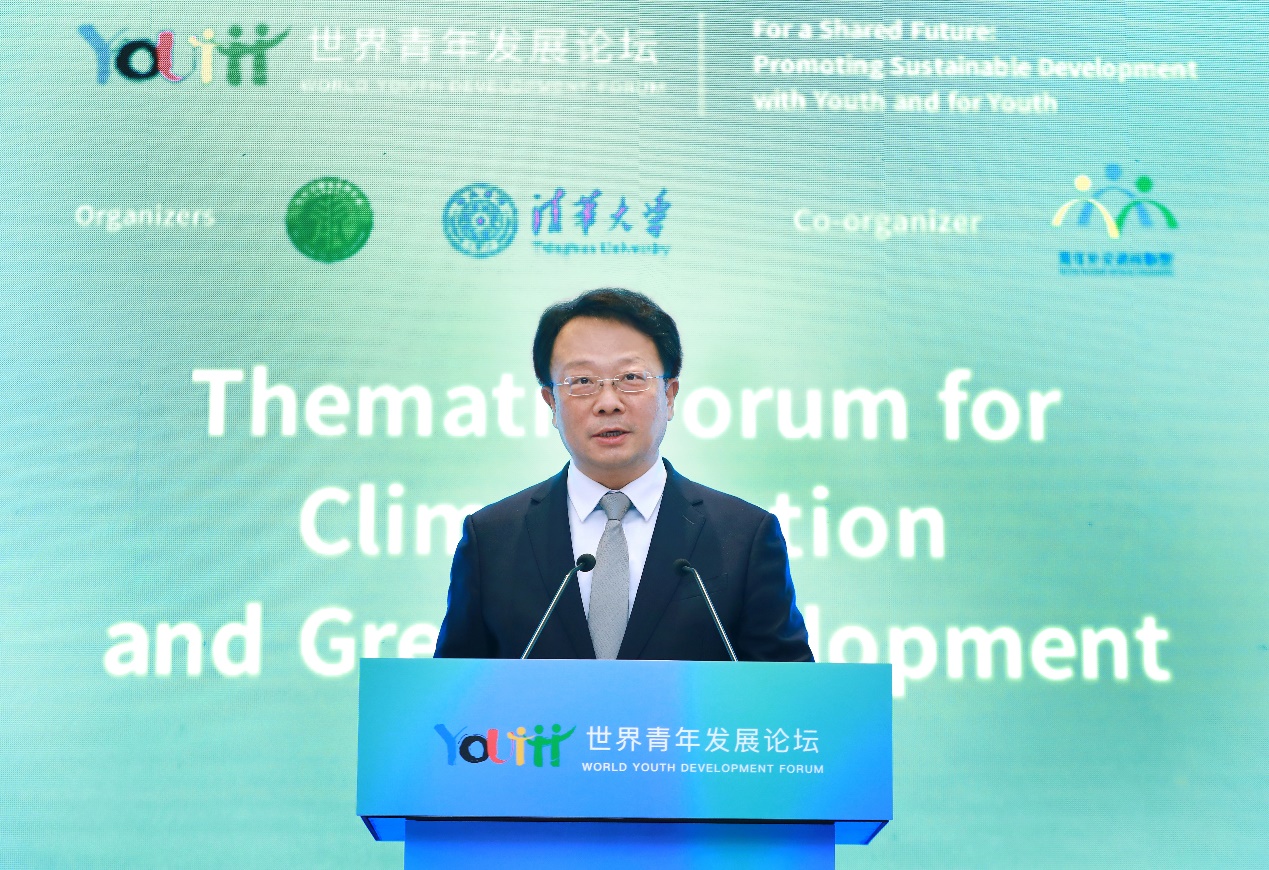
Wang Xiqin, President of Tsinghua University, delivered an opening address at the thematic forum.
Wang highlighted the message in a congratulatory letter Chinese President Xi Jinping sent to the World Youth Development Forum on July 21, in which he pointed out that young people of all countries should carry forward the common values of peace, development, equity, justice, democracy and freedom for all mankind, advance the Global Development Initiative with concrete actions, help to implement the UN’s 2030 Agenda for Sustainable Development, and jointly write a new chapter of the era for solidarity and cooperation among young people of the world.
Wang said that in recent years, climate change, loss of biodiversity, worsening desertification, frequent extreme weather and continuous spreading of Covid-19 had posed serious challenges to human survival and development. At this juncture, it was more important for universities to shoulder our responsibilities, strengthen education beyond utilitarianism and guide young people to foster a sense of shared community to urge mankind to move firmly towards the goal of sustainability.
“From the perspective of time, climate change is not only relevant to the present generation, but also to the future generations; As for the extent of impact, climate change concerns not only us as an individual country but also all countries across the world; From the perspective of life, climate change affects not only humans, but also other species,” Wang noted.
Wang said that young people were the future of our nations and the world. He emphasized that we should guide young people through education to take responsibilities beyond the present, their native countries or areas, or even humanity, to establish a sense of national community, and to keep the fine traditional cultures from their respective nations alive. Wang believed that young people should foster a sense of a human community with a shared future and grow into a driving force for world unity and they should cultivate a sense of community of life for human and nature, and thus make sound ecological environments an inexhaustible source of sustainable human development.
In response to the common challenge of climate change, Wang noted that Tsinghua University has taken the initiative to build global cooperation platforms and has been working with all sectors by leveraging its disciplinary strength. “In recent years, we have made great strides in establishing the Institute of Climate Change and Sustainable Development and the Institute for Carbon Neutrality in succession to strengthen relevant academic disciplines and the cultivation of high-level talents,” Wang added, “We have empowered the innovative development of green and low-carbon technologies with engineering science and technology, and offered potential solutions for China in achieving carbon peaking and neutrality goals. We took the lead in initiating the Global Alliance of Universities on Climate (GAUC) and now serve as the chair of GAUC. We successfully held the GAUC Graduates Forum and organized Climate Change Global Lectures. We co-hosted the Sino-American Youth Dialogue with the Massachusetts Institute of Technology (MIT) and launched the Joint Youth Initiative for Climate Response and Biodiversity Protection under Carbon Neutrality Goals.”
Wang expressed his hope that the thematic forum would serve as an opportunity to build more platforms for exchanges and cooperation, to jointly facilitate green and sustainable development across the world and to tap deeper into the wisdom of young people to raise their voices, enable them to assume greater responsibilities and pool their strength for a greener, lower-carbon and better future for all mankind.
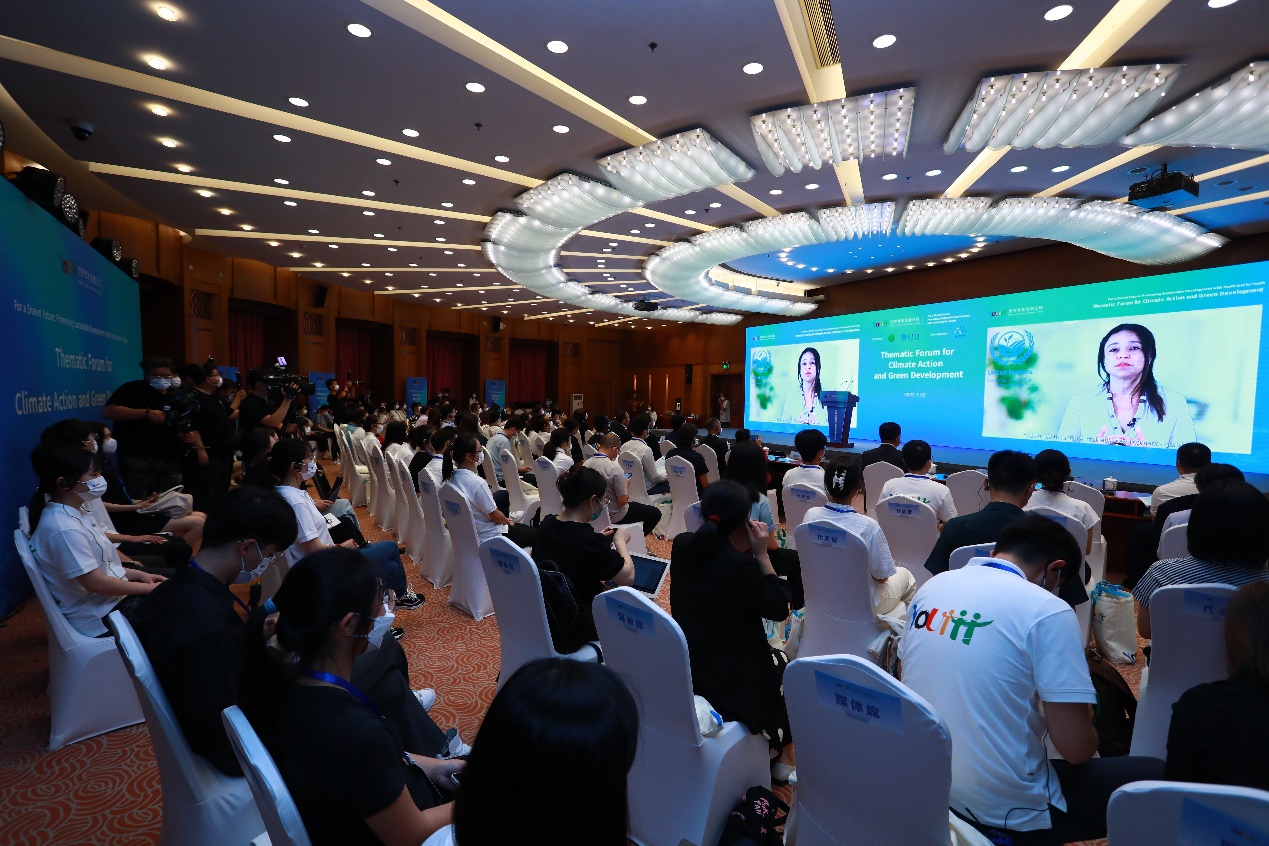
Andrea Meza Murillo, Deputy Executive Secretary of the United Nations Convention to Combat Desertification, said that as the window of opportunity to avoid the worst-case climate change scenario was closing, land restoration could be a cost-effective climate solution but only if the world acted now.
She urged higher education institutions to bring young people’s energy, talent, cutting-edge skills, innovation, and creativity to bring about land restoration and drought mitigation.
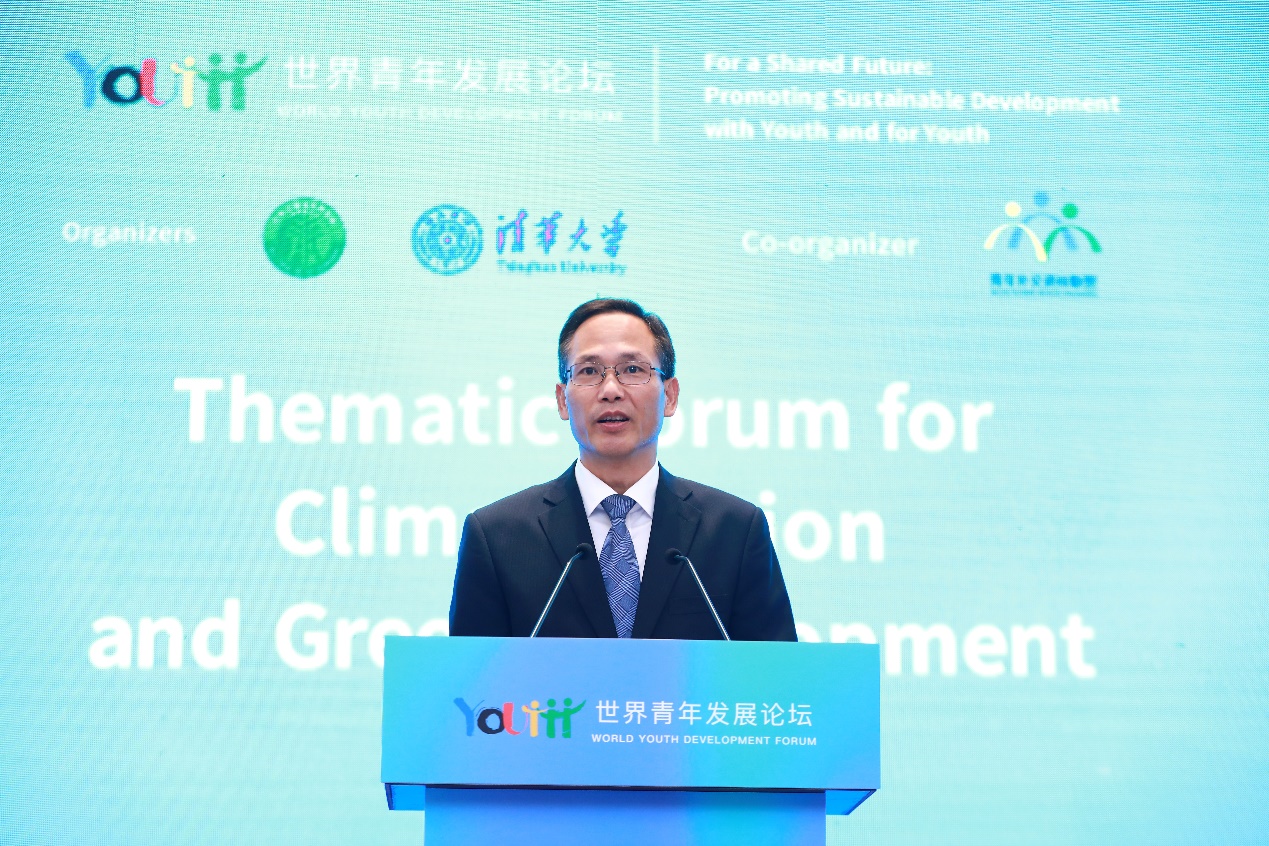
Xu Xiao, Vice President of the All-China Youth Federation, said that young people should fully stimulate their potential for innovation and creativity and engage in green entrepreneurship and use the power of science and technology to promote innovation and creativity in food conservation, ecological agriculture, clean energy, low carbon transportation and exploring new ways to protect the environment and develop the economy with better jobs.
“We are convinced that as long as young people from all countries think and act as one and pool their strength together to share the responsibility for green development, we will surely create a cleaner and more beautiful home of ours,” Xu added.
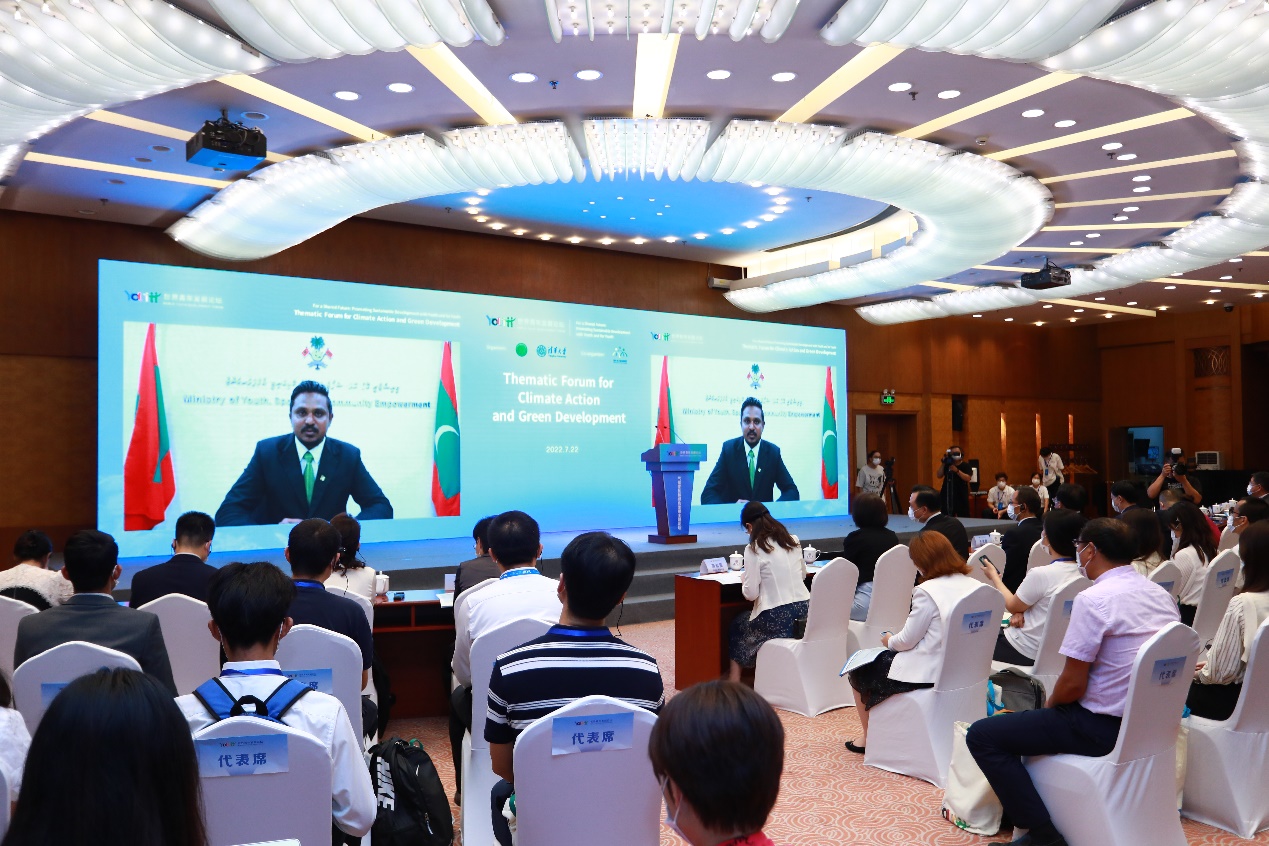
Abdulla Anees, Deputy Minister of Youth, Sports and Community Empowerment of Maldives, shared his government’s efforts in tackling climate change during his opening address, as he shed light on the significance of the role of youth in climate action and green development.
He said that to maintain the greatest level of community resilience in the face of climate change, young people had a crucial role to play, adding that government officials needed to make sure that young people’s opinions were valued and heard so that today’s young could forge their own path for the change.
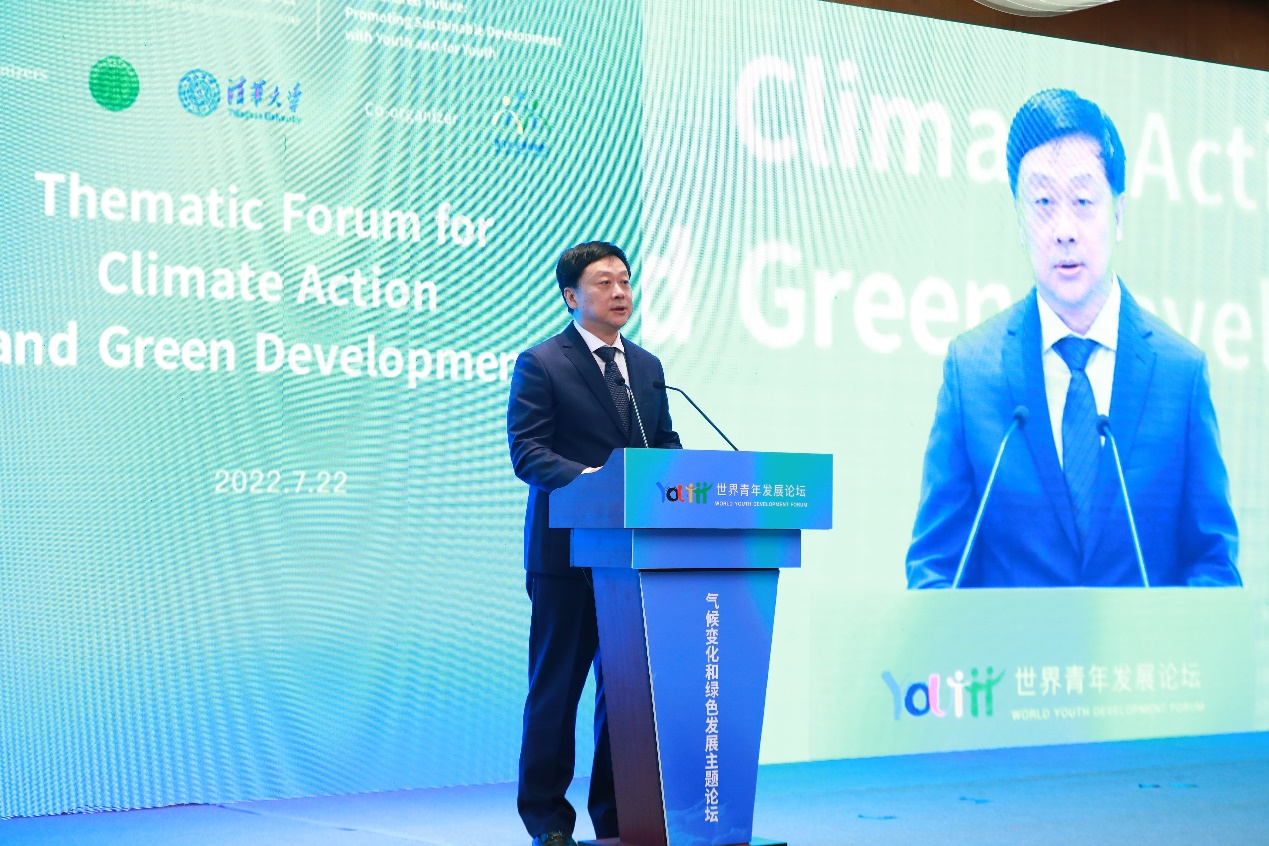
Li Gao, Director-General of the Climate Change Department of the Ministry of Ecology and Environment, China, shared details about China’s recent efforts to promote clean energy and low carbon emissions during his opening remarks, as he called on young people to work to promote the construction of an ecological civilization.
He urged young people to write a new chapter by addressing global challenges, promoting sustainable development, and achieving stronger, greater and healthier global development.
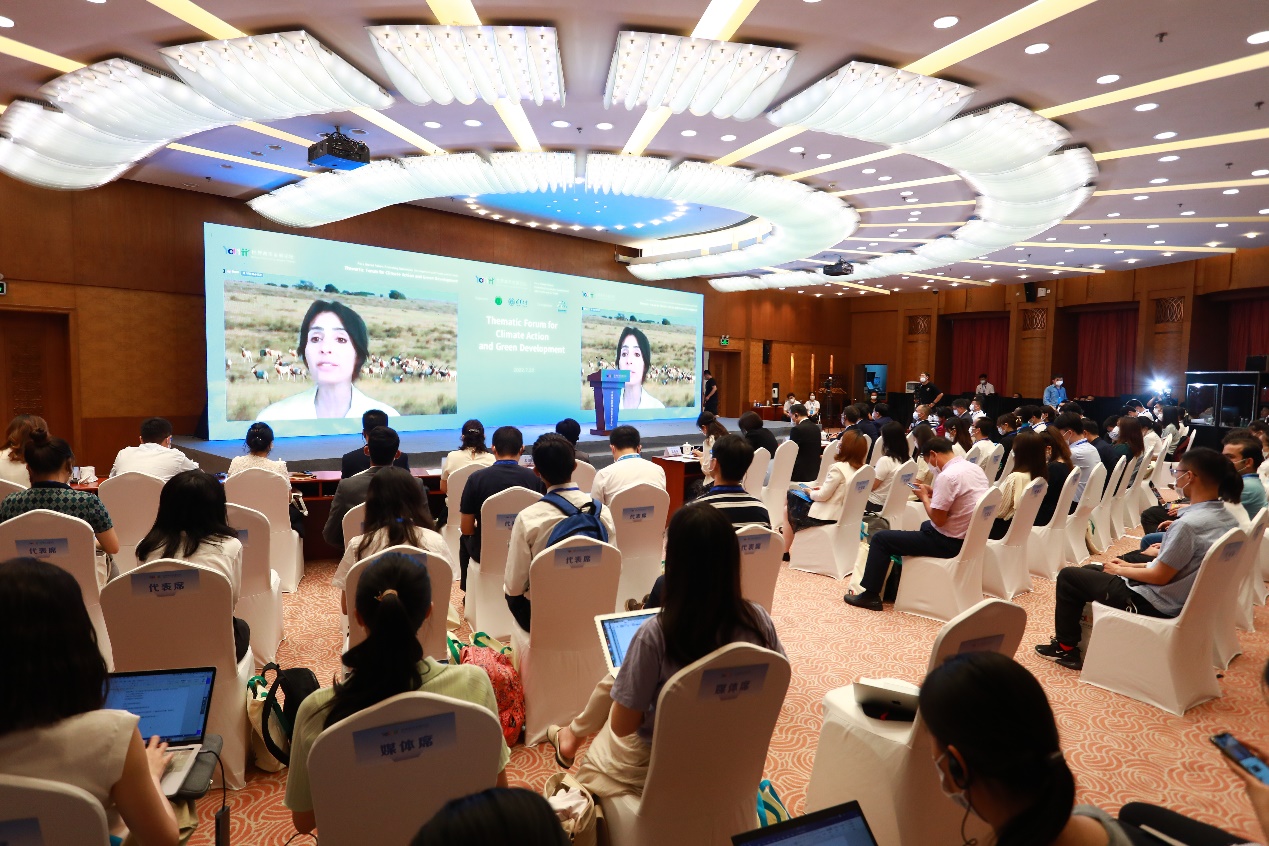
Razan Al Mubarak, President of the International Union for Conservation of Nature, highlighted the need to change the way food is produced to protect nature and the natural habitats of animals.
She encouraged young people to reconnect with nature, pointing out that younger generations are overwhelmingly moving toward greater urbanization and facing a disconnection from nature. “Youth must collectively agree on your vision for the future and the place you want nature to have in that future. It is critical that young people are given the platform to conceptualize this vision. It can't be left to the actual generation alone to set this vision for the future,” she added.
The opening session was followed by keynote speeches from eight speakers.
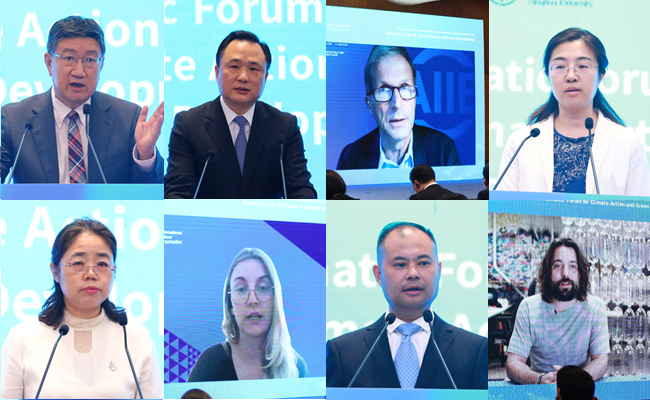
Li Zheng, Executive Vice President of the Institute of Climate Change and Sustainable Development at Tsinghua University, discussed carbon neutrality and green development.
Li Jun, Director-General of the Social Responsibility Bureau, State-owned Assets Supervision and Administration Commission, talked about the green development practices of Chinese enterprises.
Erik Berglof, Chief Economist of the Asian Infrastructure Investment Bank, shared his views on China’s net-zero transition.
Jiang Xiheng, Vice President of the Center for International Knowledge on Development, China, highlighted China’s green development and international cooperation.
Liu Xinping, Director of the Sustainability Division of the Beijing Organizing Committee of the Olympic Games, shed light on China’s experience of the green Beijing 2022 Winter Olympics.
Mette Grangaard Lund, Green Jobs Specialist at the International Labour Organization, shared insights on youth green employment.
Huang Yingfeng, Director-General of the Social Liaison Department, the Central Committee of the Communist Youth League of China, and Convenor of the National Youth Eco-Environmental Association Alliance, delivered his keynote speech on the topic “Youth Action for a Beautiful China: Outcomes and Experiences.”
Tom Szaky, founder and CEO of TerraCycle, World Economic Forum Youth Global Leader, talked about circular economy and youth practice in combating climate change during his keynote address.
The opening session was moderated by Wang Binbin, Executive Secretary-General of the Global Alliance of Universities on Climate.
After that, a youth dialogue on “Youth Perspectives and Power in Climate Action” was held.
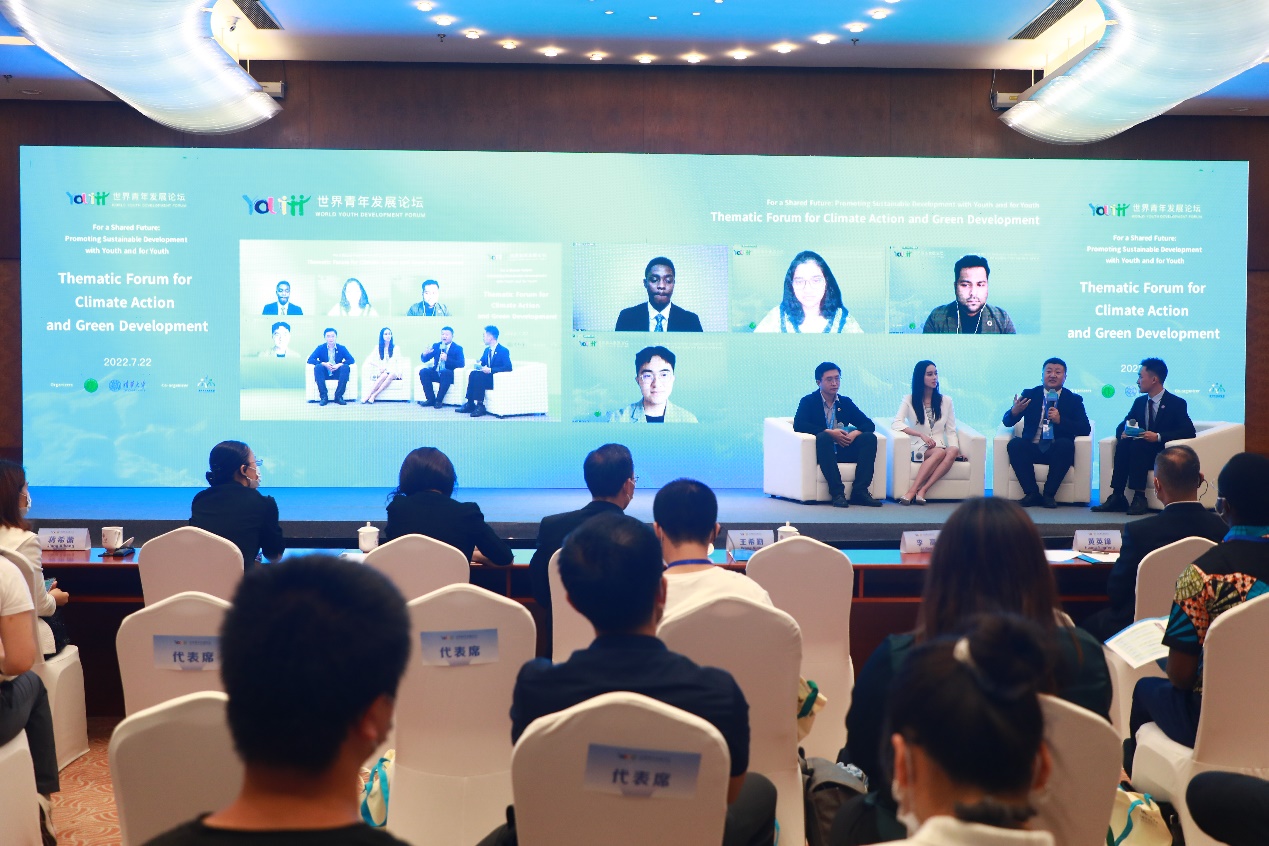
Neeshad Shafi, founder of Arab Youth Climate Movement Qatar LLC, and Liu Jichen, Young Leader for the United Nations Sustainable Development Goals, CEO of Clear Plate APP, shared their views on the sub-theme of youth leadership in climate action.
Xin Hao, co-founder of Green Zhejiang Environmental Protection Organization, member of the Zhejiang Youth Federation, and council member of the Global Water Alliance, and Mulindwa Moses, co-founder of CYE Believe Network, exchanged ideas on the sub-theme of encouraging society to promote green development.
Alice Ho, Chief Youth Officer of the Global Alliance of Universities on Climate, Sampada S. Venkatesh, Global Youth Ambassador, Global Alliance of Universities on Climate, and Xie Canyang, Head of the Tsinghua University Student Association on Net-zero Future, shared their thoughts on the sub-theme of youth empowerment for a sustainable future.
Xie Zongxu, a Youth representative from the College Alliance for Young Ambassadors, moderated the youth dialogue.
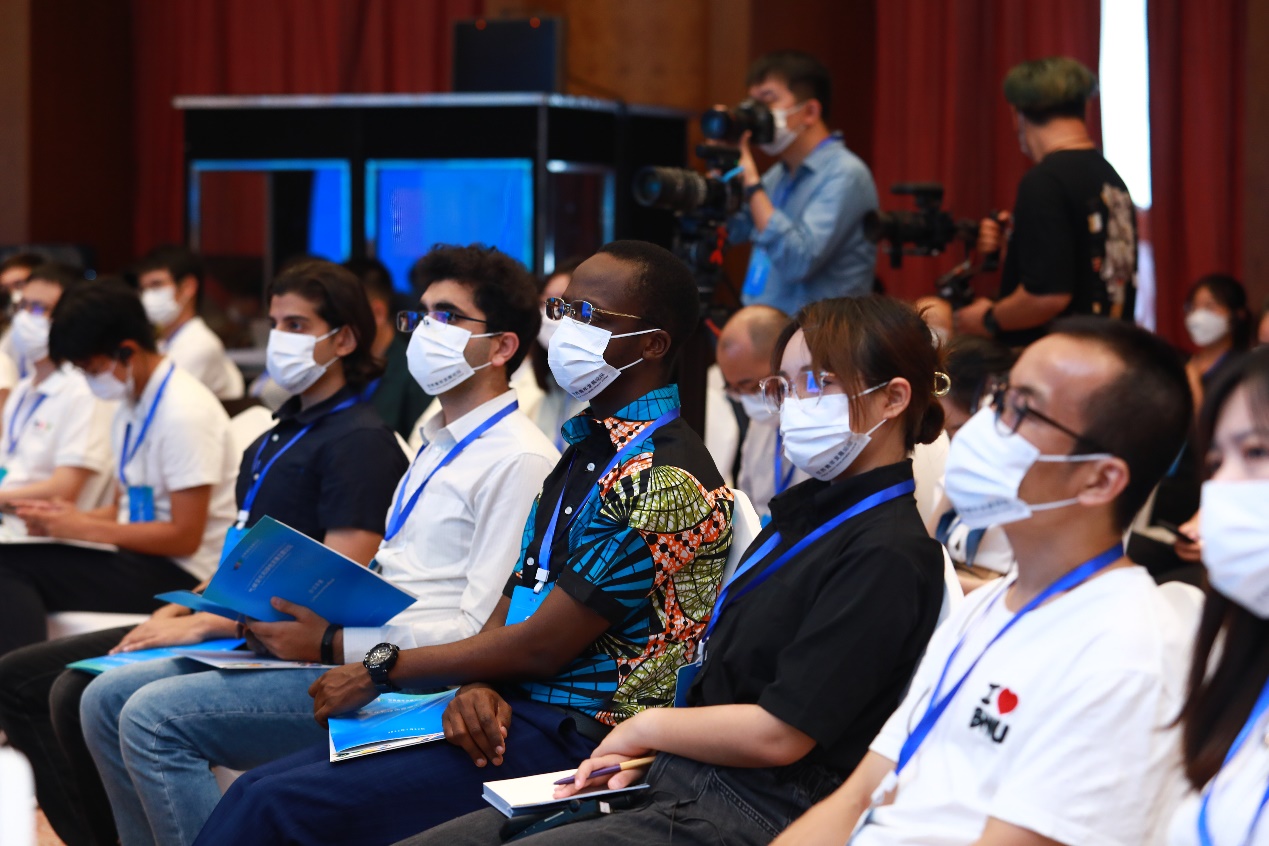
The thematic forum, held in a hybrid format, was broadcast live on multiple platforms and attended by youth representatives from around the world.
Writers: Sangeet Sangroula, Liu Shutian
Editors: John Paul Grima, John Olbrich, Guo Lili